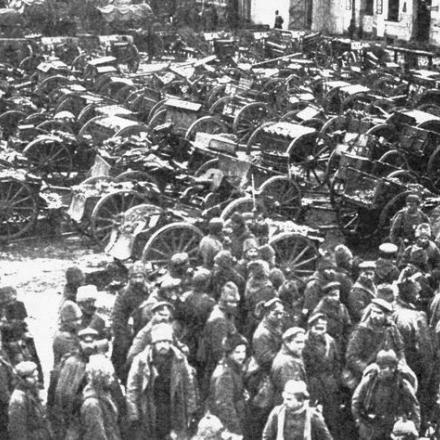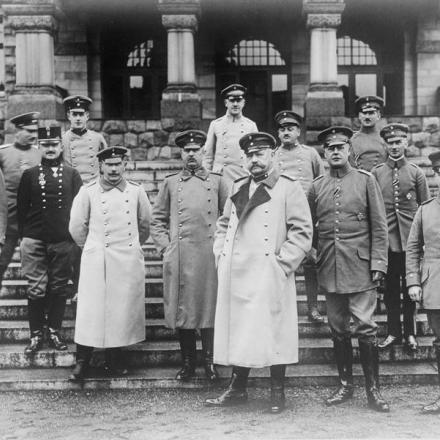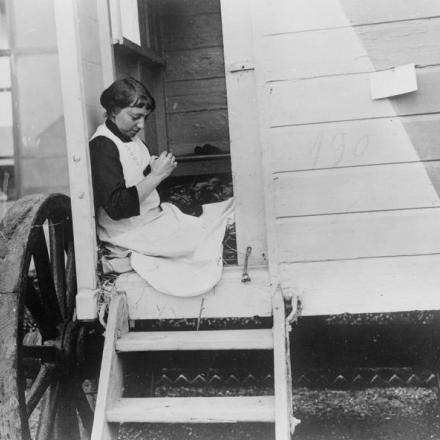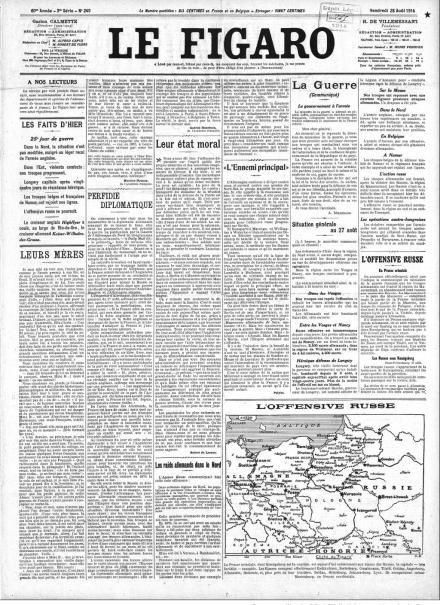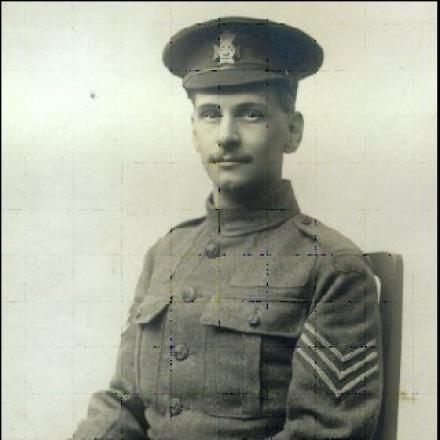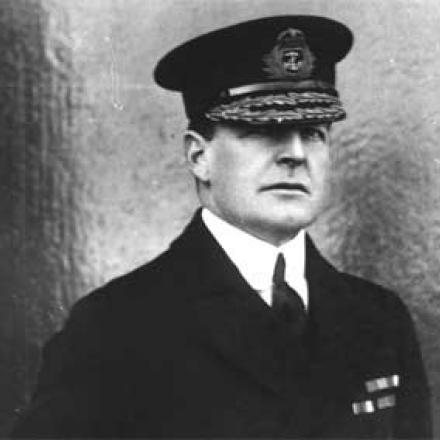Capolavoro a Tannenberg
Il 28 agosto sul fronte occidentale i combattimenti continuano a spingersi sempre più a ovest: gli Alleati arretrano dalla Meuse alla linea Noyon-Chauny-La Fère. A Guise la quinta armata francese di Lanzerac salva i britannici dall’accerchiamento.
I tedeschi hanno conquistato Sedan, come nel 1870; brutto segno. E continuano a far terra bruciata al loro passaggio. A Landrecies, capitolata un paio di giorni prima, vengono incendiate 25 abitazioni; forse per rappresaglia, forse per qualche isolato e irriducibile combattente.
Ma non tutti soffrono l’occupazione. Agostino Bernardino, rimpatriato da Liegi, viene intervistato da La Tribuna: racconta di un trattamento “speciale” per gli italiani, considerati sempre alleati. E parla di un presunto malcontento belga, ancora in attesa di essere “liberati” dai francesi e preoccupati da una possibile carestia. Aspetteranno ancora parecchio e la carestia arriverà.
Il capolavoro tedesco è però tutto in Prussia: a Tannenberg le ali di Samsonov hanno ceduto di schianto. Il Generale russo comprende il momento di crisi e prova a contattare la Prima armata, quella a nord. Samsonov avrebbe un disperato bisogno di soccorsi, ma Rennenkampf non può raggiungerlo. È bloccato da accurate iniziative della cavalleria tedesca.
Devono essere giorni frustanti per Rennenkampf. Potrebbe quasi toccare Königsberg: la capitale è lì, non dista troppi chilometri; e vorrebbe aiutare Samsonov, la cui sconfitta minaccerebbe anche la sua armata. Eppure è bloccato. Il rischioso piano elaborato da Ludendorff e Hindenburg funziona a meraviglia.
Intanto la Royal Navy confeziona un importante successo nel Mare del Nord: a Helgoland affonda cinque navi tedesche, tre sono incrociatori; altre vengono danneggiate in modo grave. Le perdite umane sono circa 700 per la marina tedesca; meno di una quarantina per i britannici. Il mare è da sempre roba loro.
Davide Sartori
GLI AVVENIMENTI
Fronte occidentale
- Finisce la battaglia della Meuse.
- Comincia la battaglia di Guise: la Quinta armata francese del Generale Lanzarec interviene in soccorso dei britannici, impedendone l’accerchiamento.
- Capitolazione di Sedan.
- I tedeschi raggiungono Hirson.
- I britannici si attestano sulla linea Noyon-Chauny-La Fère.
- I tedeschi bruciano 25 case a Landrecies.
Fronte orientale
- Prussia orientale: nel nord i russi minacciano Königsberg, ma nel sud la battaglia di Tannenberg continua a vederli in crisi.
Operazioni navali
- La Marina reale britannica vince la prima battaglia navale di Helgoland, nel Mare del Nord; vengono affondati gli incrociatori leggeri tedeschi “Koln”, “Mainz” e “Ariadne”.
Parole d'epoca
Sgt Bernard Joseph Brookes
Diario
I had better explain the important duties of the ‘Mess Orderly’ which I had the honour to perform. It meant rising half an hour before the others at 5.00 am (some ‘shiver’) and to cut up the bacon for the cook and after meals wash up the cooking utensils. I found that what with getting up so early, working as orderly and parades during the day, by the time it was evening I was fairly tired. I laid my weary body on it’s straw bed and my coconut on my kit bag and dropped off into a sound sleep. At 11.15 pm we had a ‘Night Alarm’ and had to turn out in the cold to see how long it would take us to get clear of our quarters in the event of such a necessity arising. As far as I can remember, I created the record (although unfortunately at the wrong end), for our barn was last out and I was the last out of the barn.
Parole d'epoca
Admiral Sir David Beatty
Report
I have the honor to report that on Thursday, August 27, at 5 a. m., I proceeded with the First Battle Cruiser Squadron and First Light Cruiser Squadron in company, to rendezvous with the Rear Admiral, Invincible.
At 4 a. m., August 28, the movement of the flotillas commenced as previously arranged the Battle Cruiser Squadron and Light Cruiser Squadron supporting. The Rear Admiral.Invincible, with New Zealand and four destroyers, having joined my flag, the squadron passed through the prearranged rendezvous.
At 8.10 a.m. I received a signal from the Commodore (T), informing me that the flotilla was in action with the enemy. This was presumably in the vicinity of their prearranged rendezvous. From this time until 11 a. m. I remained about the vicinity ready to support as necessary, intercepting various signals, which contained no information on which I could act.
At 11 a. m. the squadron was attacked by three submarines The attack was frustrated by rapid maneuvering and the four destroyers were ordered to attack them. Shortly after 11 a. m. various signals having been received indicating that the Commodore (T) and Commodore (S) were both in need of assistance I ordered the Light Cruiser Squadron to support the torpedo flotillas.
Later I received a signal from the Commodore (T), stating that he was being attacked by a large cruiser, and a further signal informing me that he was being hard pressed, and asking for assistance. The Captain (D), First Flotilla, also signaled that he was in need of help.
From the foregoing the situation appeared to me critical. The flotillas had advanced only two miles since 8 a. m., and were onlyabout 25 miles from two enemy bases on their flank and rear respectively. Commodore Goodenough had detached two of his light cruisers to assist some destroyers earlier in the day, and these had not yet rejoined. (They joined at 2.30 p.m.) As the reports indicated the presence of many enemy ships -- one a large cruiser -- I considered that his force might not be strong enough to deal with the situation sufficiently rapidly, so at 11.30 a. m. the battle cruisers turned to east-southeast and worked up to full speed. It was evident that to be of any value the support must be overwhelming, and carried out at the highest speed possible.
I had not lost sight of the risk of submarines, and possible sortie in force from the enemy's base, especially in view of the mist to the southeast. Our high speed, however, made submarine attack difficult, and the smoothness of the sea made their detection comparatively easy. I considered that we were powerful enough to deal with any sorties except by a battle squadron, which was unlikely to come out in time, provided our stroke was sufficiently rapid.
At 12.15 p.m. Fearless and First Flotilla were sighted retiring west. At the same time the Light Cruiser Squadron was observed to be engaging an enemy ship ahead. They appeared to have her beat.
I then steered northeast to sounds of firing ahead, and at 12.30 p.m. sighted Arethusa and Third Flotilla retiring to the westward engaging a cruiser of the Kolberg class on our port bow. I steered to cut her off from Helgoland, and at 12.37 p.m. open ed fire. At 12.42 the enemy turned to northeast, and we chased at 27 knots.
At 12.56 p.m. sighted and engaged a two-funneled cruiser-ahead. Lion fired two salvos at her, which took effect, and she disappeared into the mist, burning furiously and in a sinking condition. In view of the mist and that she was steering at high speed at right angles to Lion, who was herself steaming at 28 knots, the Lion's firing was very creditable.
Our destroyers had reported the presence of floating mines to the eastward, and I considered it inadvisable to pursue her. It was also essential that the squadrons should remain concentrated, and I accordingly ordered a withdrawal. The battle cruisers turned north and circled to port to complete the destruction of the vessel first engaged. She was sighted again at 1.25 p.m. steaming southeast, with colors still flying. Lion opened fire with two turrets, and at 1.35 p.m., after receiving two salvos, she sank.
The four attacked destroyers were sent to pick up survivors, but I deeply regret that they subsequently reported that they searched the area but found none.
At 1.40 p.m. the battle cruisers turned to the northward, and Queen Mary was again attacked by a submarine. The attack was avoided by the use of the helm. Lowestoft was also unsuccessfully attacked. The battle cruisers covered the retirement until nightfall. By 6 p. m., the retirement having been well executed and all destroyers accounted for, I altered course, spread the light cruisers, and swept northwards in accordance with the Commander-in-Chief's orders. At 7.45 p.m. I detached Liverpool to Rosyth with German prisoners, seven officers and 79 men, survivors from Mainz. No further incident occurred.
